Experts discuss dengue fever prevention in Vietnam
The event was organised in collaboration with the Pasteur Institute in Ho Chi Minh City and the Vietnam Association of Prevention Medicine (VAPM) in Hanoi.
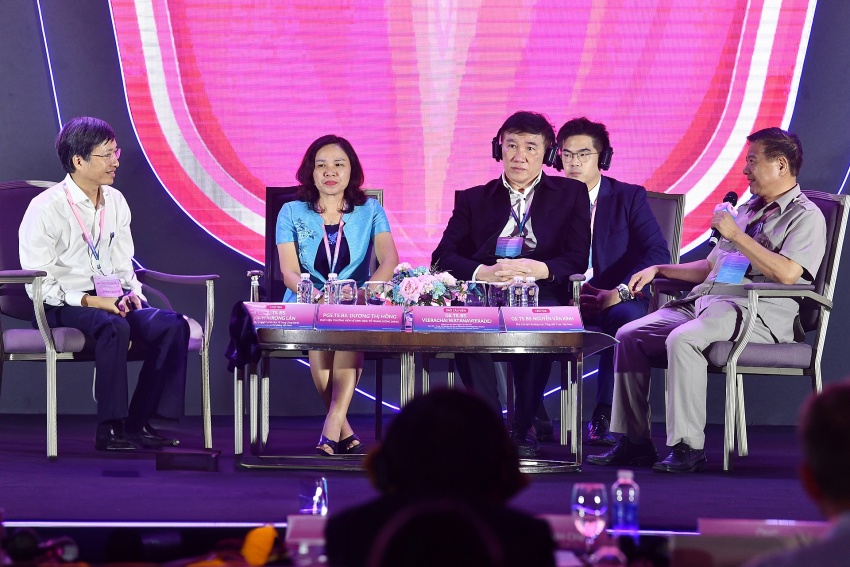 |
| Experts in the panel discussion |
Themed "Vaccine: A New Paradigm in Dengue Fever Prevention in Vietnam", the event aimed to provide a platform for advancing knowledge sharing, fostering collaboration in holistic dengue management strategies, and introducing a new dengue vaccine available in public and private institutions. The dengue vaccine was approved by the Drug Administration of Vietnam (DAV) in May 2024.
The symposia were attended by nearly 1,000 scientists, healthcare professionals, and representatives from the Ministry of Health, World Health Organization (WHO), the US CDC, and the Japan External Trade Organization.
Dengue fever is among the most common mosquito-borne viral diseases worldwide and is recognised as one of the top threats to public health by the WHO. Dengue is currently endemic in more than 100 countries and causes an estimated 390 million infections each year with global incidence rates increasing 30-fold over the last 50 years due to climate change, rapid urbanisation, and movements of people and goods.
Vietnam is listed among the top countries suffering a serious burden from dengue fever by the WHO. Experts warn that dengue fever is evolving to become more unpredictable and dangerous as it no longer follows the same patterns while expanding endemic areas. From 1980-2018, Vietnam recorded epidemic peaks every 10 years, but then from 2019-2023 alone, Vietnam experienced peaks in 2019 (with over 300,000 cases) and 2022 (361,813 cases).
Assoc. Prof. Nguyen Vu Trung, director of the Pasteur Institute in Ho Chi Minh City, and chairman of the symposium in Ho Chi Minh City, emphasised, “The peak of the dengue fever epidemic in Vietnam typically occurs in the rainy season, from July to November. Recently, Vietnam has recorded new cases of dengue fever, including severe and life-threatening cases, even during the remaining months of the year. Moreover, dengue fever typically affected the central and southern regions, but in recent years, dengue fever has become more prevalent in the north of Vietnam. These concerning shifts have intensified the need for more immediate actions and resources within the healthcare sector and community for dengue prevention and management.”
As co-chairman of the symposium in Hanoi, Prof. Phan Trong Lan, director of the National Institute of Hygiene and Epidemiology, stated, “The Vietnamese government, healthcare agencies, and the Vietnamese people have worked together to achieve progress in dengue prevention and management, especially in reducing death rates. The introduction and availability of the dengue vaccine, alongside ongoing efforts in vector control, personal protection, and community engagement, mark a significant step forward for Vietnam. These integrated dengue prevention measures will help reduce burdens on the healthcare system, ultimately benefiting the country's overall health and economy.”
The symposia also featured Prof. Veerachai Wattanaveeradej, director of Vaccine Research Centre at Bangkok Phramongkutklao Hospital and Executive Committee at the Royal College Pediatricians and Pediatric Society of Thailand, who shared key learnings about the safety profile and post dengue vaccination surveillance, from clinical trials to real-life practice in Thailand – one of the top 30 countries in the world experiencing high burdens from dengue fever.
Dr. Derek Wallace, president of Global Vaccine Business Unit at Takeda, addressed the Vietnamese healthcare community about the innovative dengue vaccine as part of a comprehensive strategy for dengue fever prevention and control. Takeda’s dengue vaccine has been recommended by the WHO’s Strategic Advisory Group of Experts (SAGE) for introduction in countries with high dengue burden and high transmission intensity to maximise public health impact.
Dr. Wallace shared, “While current prevention efforts are essential, the introduction of a vaccine that provides broad protection marks a significant breakthrough in the fight against this disease. Takeda’s dengue vaccine represents a major step forward in our mission to develop innovative vaccines that address the toughest public health challenges. The recent recommendation by WHO underscores the vaccine’s potential as an important tool within an integrated strategy to help reduce the global threat of dengue.”
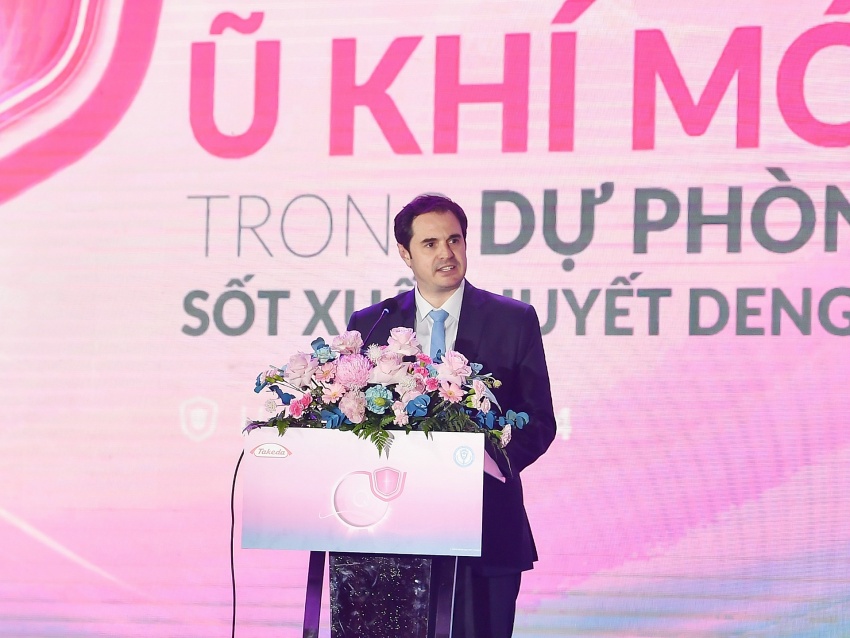 |
| Dion Warren, area head of India and Southeast Asia at Takeda |
Dion Warren, area head of India and Southeast Asia at Takeda, added, “Collaboration is key in the fight against dengue. Takeda is proud to join forces with health authorities, healthcare professionals, medical societies, academia, and other partners to combat this public health threat in Vietnam. With dengue posing substantial health risks in Vietnam, the introduction of the dengue vaccine as an additional preventive tool alongside existing measures offers renewed hope. We are optimistic about the future, where integrated protection against dengue could improve the lives of countless people in Vietnam and beyond.”
In recognition of the efforts in dengue prevention and management by Vietnamese healthcare professionals, photo exhibitiona themed “Three-Decade Journey of Preventing and Controlling Dengue Fever in Vietnam” were held. In Ho Chi Minh City, the exhibition was hosted by Assoc. Prof. Nguyen Thi Kim Tien, former minister of health, and in Hanoi, by Prof. Vu Sinh Nam, senior advisor on dengue fever at the National Institute Of Hygiene And Epidemiology and chief of staff at the VAPM.
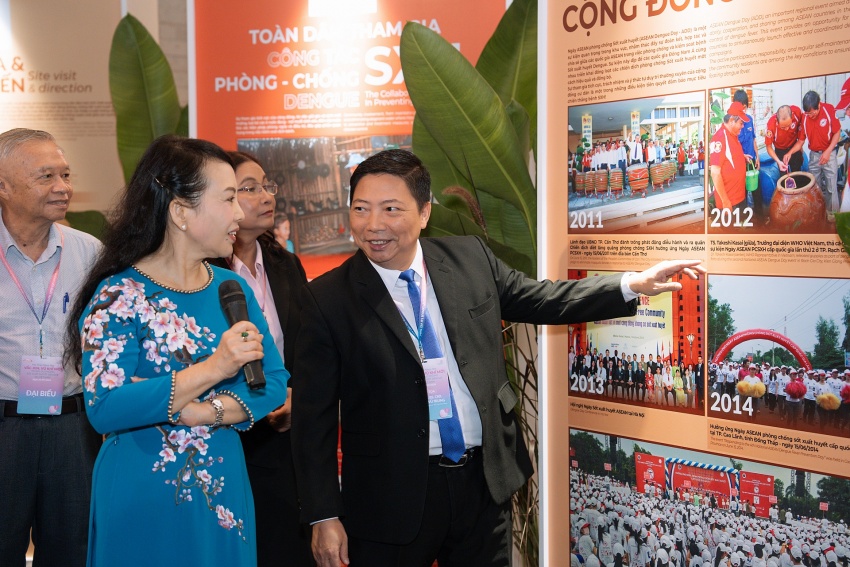 |
| The photo exhibition |
Takeda’s dengue vaccine is currently approved for children and adults in more than 40 countries, including the European Union, Brazil, Argentina, Columbia, Indonesia, Thailand, Malaysia, and Vietnam. The vaccine is also accessible through public vaccination programmes in Indonesia, Brazil, and Argentina.
In addition to being recommended in the World Health Organization's (WHO) dengue vaccines position paper, the vaccine has recently been included in the WHO’s List of Prequalified Vaccines, underscoring its quality and reliability as an important dengue prevention method suitable for public programmes.
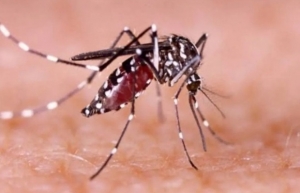 | Indonesia issues dengue fever warning to Bali tourists Indonesia’s Health Ministry has issued an early warning asking local and foreign tourists to remain alert against dengue hemorrhagic fever (DHF), which is on the rise in Bali. |
 | Takeda dengue vaccine approved in Vietnam The Drug Administration of Vietnam (DAV) on May 14 issued a decision approving dengue vaccine of Takeda Pharmaceutical Company Limited, becoming the first dengue vaccine approved in the country for use in individuals from four years of age, regardless of previous dengue exposure and without the need for pre-vaccination testing. |
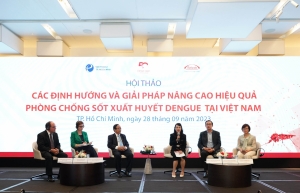 | Experts come together to enhance dengue prevention strategies in Vietnam On September 28, Takeda Pharmaceuticals (Asia-Pacific) Pte., Ltd. (Takeda), in collaboration with The Pasteur Institute in Ho Chi Minh City, held the conference Orientations and Solutions to Enhance Dengue Haemorrhagic Fever Prevention Effectiveness in Vietnam, attracting many top-notch experts from the healthcare industry. |
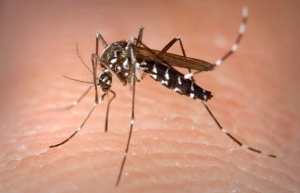 | Indonesia plans to develop homegrown vaccine against dengue fever Indonesia’s National Research and Innovation Agency (BRIN) plans to initiate the development of a homegrown dengue hemorrhagic fever (DBD) vaccine. |
What the stars mean:
★ Poor ★ ★ Promising ★★★ Good ★★★★ Very good ★★★★★ Exceptional
 Tag:
Tag:
Themes: Healthcare Platform
- Opella and Long Chau join forces to enhance digestive and bone health
- Hanoi intensifies airport monitoring amid Nipah disease risks
- Cosmetics rules set for overhaul under draft decree
- Policy obstacles being addressed in drug licensing and renewal
- Sanofi, Long Chau Pharmacy relaunch medicine blister pack collection initiative
Related Contents
Latest News
More News
- Hanoi intensifies airport monitoring amid Nipah disease risks (January 29, 2026 | 15:21)
- 14th National Party Congress wraps up with success (January 25, 2026 | 09:49)
- Congratulations from VFF Central Committee's int’l partners to 14th National Party Congress (January 25, 2026 | 09:46)
- List of newly-elected members of 14th Political Bureau announced (January 23, 2026 | 16:27)
- 14th Party Central Committee unanimously elects To Lam as General Secretary (January 23, 2026 | 16:22)
- List of members of 14th Party Central Committee announced (January 23, 2026 | 09:12)
- Highlights of fourth working day of 14th National Party Congress (January 23, 2026 | 09:06)
- Press provides timely, accurate coverage of 14th National Party Congress (January 22, 2026 | 09:49)
- Press release on second working day of 14th National Party Congress (January 22, 2026 | 09:19)
- Minister sets out key directions to promote intrinsic strength of Vietnamese culture (January 22, 2026 | 09:16)






















 Mobile Version
Mobile Version